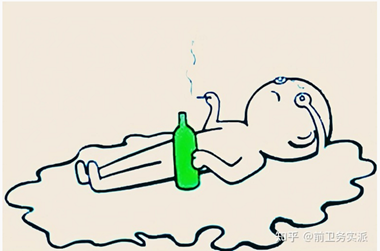China’s leaders have staked the country’s future on innovation. In its latest blueprint for national economic development, China has pledged to end its reliance on imported technology and to focus on domestic consumption as the primary driver of growth. At a conference in May for engineers and scientists, Chinese leader Xi Jinping urged greater self-reliance in science and technology.
Source:
https://www.brookings.edu
The drive toward self-reliance has encountered an unlikely form of resistance in a generation of young Chinese. They balk at the Party’s high-minded calls for “continued struggle”. This is against a deeply engrained culture of overwork without the promise of real advancement. They rather opt for “lying flat,” or tangping (躺平). The “lying flat” movement calls on young workers and professionals, including the middle-class Chinese who are to be the engine of Xi Jinping’s domestic boom, to opt out of the struggle for workplace success. Further, to reject the promise of consumer fulfilment. For some, “lying flat” promises release from the crush of life and work in a fast-paced society. For China’s leadership, however, this movement is passive resistance to the national drive for development. It is a worrying trend—a threat to ambition.
The “lying flat” movement was jumpstarted in April when a post on Baidu titled “Lying Flat Is Justice” went viral on the platform. The post shared the author’s lessons from two years of joblessness. The extraordinary stresses of contemporary life, the author concluded, were unnecessary, the product of the old-fashioned mindset of the previous generation.
Over the past decade, China’s leadership has identified innovation as the way forward for economic and social development. The promise of innovation has been epitomized by China’s tech entrepreneurs. These include billionaires like Alibaba’s Jack Ma and Tencent’s Pony Ma. But the dream of innovation has collided with the harsh reality of overwork in a technology sector that seems sapped of opportunities for breakthrough. Jack Ma and others have advocated a severe culture of overtime work that has become known as “996”—working from 9 a.m. to 9 p.m. six days a week.
At the technology giant Huawei, this extreme work environment has been dubbed “wolf culture,” a climate of fierce internal workplace competition in which workers must either kill or be killed.
The “lying flat” movement isn’t the first time China’s tech workers have rebelled. In 2019, thousands of tech workers, including programmers and beta testers for major technology firms, responded to China’s extreme working conditions by launching an online campaign called “996.ICU”. The “996.ICU” platform began compiling a list of Chinese companies with extreme work cultures and advocated an industry consensus on reasonable hours.
While the campaign managed to focus some attention on the issue of extreme overwork, it could not shake the predominant culture in China’s tech industry. Company bosses merely shrugged it off.
“Lying flat-ism” is seen by some as the only possible form of resistance to this cycle of exploitation. One of the dominant slogans of the “lying flat” movement has been, “Don’t buy property; don’t buy a car; don’t get married; don’t have children; and don’t consume.” For this reason, calls to “lie flat” have doubly concerned China’s leadership, as they threaten both to sap the country of the ambition to innovate and to knock down the second leg of the country’s long-term development strategy—the drive to consume.
Chinese tech executives’ embrace of extreme work culture find justification in the official Party narrative of tireless struggle. But try as it might to drown out the growing despair among millennials and Generation Z, China’s government will have to grapple with the social costs of breakneck competition in an environment of dwindling returns. And it will have to do more than repeat slogans of struggle and self-sacrifice to inspire the next generation of workers and innovators.
References:
The “lying flat” movement standing in the way of China’s innovation drive, David Bandurski, July 8, 2021 (https://www.brookings.edu)
What China’s “Lying Flat” trend means for luxury brand, Juliette Duveau and Sophia Dumenil, July 11, 2021 (https://jingdaily.com)

No comments:
Post a Comment